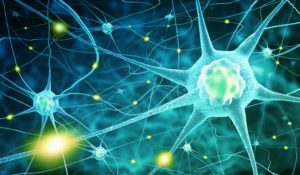 Hormones are a lot more complex than the saying “Men are from Mars, women are from Venus” would lead you to believe.
Hormones are a lot more complex than the saying “Men are from Mars, women are from Venus” would lead you to believe.
Nearly everybody associates them with gender and reproduction, but the reach of these chemicals is far greater.
Advertisement
Glands in your endocrine system release hormones that tell virtually every part of your body what to do, when to do it, and how long to do it. Hormones contribute to a number of physiological processes, but their efficiency and function alter over time. The hormones you’ve likely heard the most about are the human reproductive hormones testosterone, progesterone, and estrogen.
These chemicals do a lot more than serve as the foundation for human reproduction. They play a role in mood, bone health, energy, and more. But because they are highest during your “prime reproductive years,” decreasing levels over time can lead to a series of symptoms.
Women go through menopause at an average age of 51. Testosterone in men starts to drop around age 40.
Estrogen plays a big role in building and maintaining healthy bones and arteries in women, As estrogen levels deplete, women have an increased risk for heart disease, osteoporosis, falls, and bone fractures. But it does not stop there. Menopause can also bring on memory trouble, brain fog, and mood changes (not to mention the hot flashes and night sweats).
Men also experience symptoms associated with limited testosterone production. Sometimes they can even cease to produce testosterone altogether, a condition known as andropause or male menopause.
Depleted testosterone can lead to fatigue, loss of muscle mass and strength, lost body hair, and lower libido.
Advertisement
To offset these changes, or at least limit their influence, maintaining an active lifestyle and eating a healthful diet, including plenty of healthy fats, is recommended. Women may get the most benefit from doing workouts centered around balance and muscle building. Trying to eat foods rich in phytoestrogens, like soy, may also help, as should eating foods rich in calcium and magnesium. A vitamin D supplement is recommended, too.
Men should try to focus on resistance training, eating a protein-rich diet, and keep stress under control.
Lower levels of sex hormones could be responsible for some of the weird things you’re feeling with age. Adopting a lifestyle to help minimize these effects of lower hormones might help you begin to feel a bit more like yourself.
